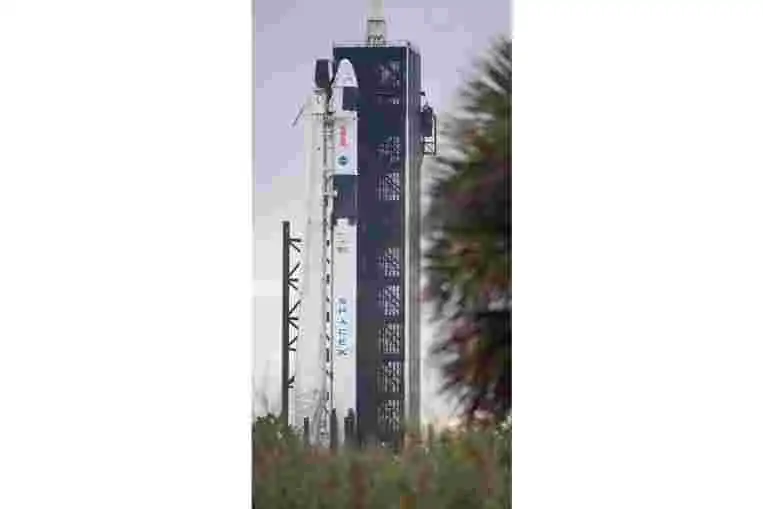
Four astronauts were poised to launch on the SpaceX Crew Dragon "Resilience" to the International Space Station (ISS) yesterday, the first of what the US hopes will be several routine missions following a successful test flight in late spring.
Three AmericansMr Michael Hopkins, Mr Victor Glover and Ms Shannon Walkerand Japan's Mr Soichi Noguchi were scheduled to blast off at 7.27pm yesterday (8.27am today Singapore time) from the Kennedy Space Centre in Florida.
In May, SpaceX completed a demonstration mission showing it could take astronauts to the ISS and bring them back safely, thus ending nearly a decade of American reliance on Russia for rides on its Soyuz rockets.
"The history being made this time is we're launching what we call an operational flight to the International Space Station," NASA administrator Jim Bridenstine told newsmen last Friday.
The launch will be attended by VP Mike Pence and his wife, Karen Pence.
The crew will dock at their destination at around 12pm tomorrow Singapore time, joining two Russians and one American at the ISS, and stay for six months.
The Crew Dragon this month became the first spacecraft to be certified by Nasa since the Space Shuttle nearly 40 years ago.
The capsule is similar in shape to the spacecraft which preceded Space Shuttle, and its launch vehicle is a reusable SpaceX Falcon 9 rocket. At the end of its missions, the Crew Dragon deploys parachutes and then splashes down in water, just as in the Apollo era.
Nasa turned to SpaceX and Boeing after shutting the checkered Space Shuttle programme in 2011, which failed in its main objectives of making space travel affordable and safe.
The agency would have spent more than US$8 billion (S$11 billion) on the commercial crew programme by 2024, with the hope that the private sector can take care of Nasa's needs in "low Earth orbit" so it's freed up to focus on return missions to the Moon and then on to Mars.
SpaceX, founded by Mr Elon Musk in 2002, has leapfrogged its much older rival Boeing, whose space programme has floundered after a failed test of its uncrewed Starliner the previous year.
But SpaceX's success would not mean the United States will stop hitching rides with Russia altogether, said Mr Bridenstine.
"We want to have an exchange of seats where American astronauts can fly on Russian Soyuz rockets and Russian cosmonauts can fly on commercial crew vehicles," he added, explaining that this was a necessary step in case either programme was down for any period of time.
But space ties between the US and Russia, one of the few bright spots in their bilateral ties, have frayed in recent years.
Russia has said it would not be a partner in the Artemis programme to return to the Moon in 2024, claiming that the Nasa-led mission is too US-centric.
Mr Dmitry Rogozin, the head of Russia's space agency Roscosmos, has repeatedly mocked SpaceX's technology, and had announced that Roscosmos would build rockets that surpass Mr Musk's.
He has told a state news agency that he was unimpressed with the Crew Dragon's water landing, calling it "rather rough", and stating that his agency was developing a methane rocket that will be reusable 100 times.
AGENCE France-PRESSE